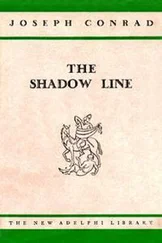Joseph Conrad
An Outcast of the Islands
“An Outcast of the Islands” is my second novel in the absolute sense of the word; second in conception, second in execution, second as it were in its essence. There was no hesitation, half-formed plan, vague idea, or the vaguest reverie of anything else between it and “Almayer’s Folly.” The only doubt I suffered from, after the publication of “Almayer’s Folly,” was whether I should write another line for print. Those days, now grown so dim, had their poignant moments. Neither in my mind nor in my heart had I then given up the sea. In truth I was clinging to it desperately, all the more desperately because, against my will, I could not help feeling that there was something changed in my relation to it. “Almayer’s Folly,” had been finished and done with. The mood itself was gone. But it had left the memory of an experience that, both in thought and emotion was unconnected with the sea, and I suppose that part of my moral being which is rooted in consistency was badly shaken. I was a victim of contrary stresses which produced a state of immobility. I gave myself up to indolence. Since it was impossible for me to face both ways I had elected to face nothing. The discovery of new values in life is a very chaotic experience; there is a tremendous amount of jostling and confusion and a momentary feeling of darkness. I let my spirit float supine over that chaos.
A phrase of Edward Garnett’s is, as a matter of fact, responsible for this book. The first of the friends I made for myself by my pen it was but natural that he should be the recipient, at that time, of my confidences. One evening when we had dined together and he had listened to the account of my perplexities (I fear he must have been growing a little tired of them) he pointed out that there was no need to determine my future absolutely. Then he added: “You have the style, you have the temperament; why not write another?” I believe that as far as one man may wish to influence another man’s life Edward Garnett had a great desire that I should go on writing. At that time, and I may say, ever afterwards, he was always very patient and gentle with me. What strikes me most however in the phrase quoted above which was offered to me in a tone of detachment is not its gentleness but its effective wisdom. Had he said, “Why not go on writing,” it is very probable he would have scared me away from pen and ink for ever; but there was nothing either to frighten one or arouse one’s antagonism in the mere suggestion to “write another.” And thus a dead point in the revolution of my affairs was insidiously got over. The word “another” did it. At about eleven o’clock of a nice London night, Edward and I walked along interminable streets talking of many things, and I remember that on getting home I sat down and wrote about half a page of “An Outcast of the Islands” before I slept. This was committing myself definitely, I won’t say to another life, but to another book. There is apparently something in my character which will not allow me to abandon for good any piece of work I have begun. I have laid aside many beginnings. I have laid them aside with sorrow, with disgust, with rage, with melancholy and even with self-contempt; but even at the worst I had an uneasy consciousness that I would have to go back to them.
“An Outcast of the Islands” belongs to those novels of mine that were never laid aside; and though it brought me the qualification of “exotic writer” I don’t think the charge was at all justified.
For the life of me I don’t see that there is the slightest exotic spirit in the conception or style of that novel. It is certainly the most tropical of my eastern tales. The mere scenery got a great hold on me as I went on, perhaps because (I may just as well confess that) the story itself was never very near my heart.
It engaged my imagination much more than my affection. As to my feeling for Willems it was but the regard one cannot help having for one’s own creation. Obviously I could not be indifferent to a man on whose head I had brought so much evil simply by imagining him such as he appears in the novel – and that, too, on a very slight foundation.
The man who suggested Willems to me was not particularly interesting in himself. My interest was aroused by his dependent position, his strange, dubious status of a mistrusted, disliked, worn-out European living on the reluctant toleration of that Settlement hidden in the heart of the forest-land, up that sombre stream which our ship was the only white men’s ship to visit. With his hollow, clean-shaved cheeks, a heavy grey moustache and eyes without any expression whatever, clad always in a spotless sleeping suit much be-frogged in front, which left his lean neck wholly uncovered, and with his bare feet in a pair of straw slippers, he wandered silently amongst the houses in daylight, almost as dumb as an animal and apparently much more homeless. I don’t know what he did with himself at night. He must have had a place, a hut, a palm-leaf shed, some sort of hovel where he kept his razor and his change of sleeping suits. An air of futile mystery hung over him, something not exactly dark but obviously ugly. The only definite statement I could extract from anybody was that it was he who had “brought the Arabs into the river.” That must have happened many years before. But how did he bring them into the river? He could hardly have done it in his arms like a lot of kittens. I knew that Almayer founded the chronology of all his misfortunes on the date of that fateful advent; and yet the very first time we dined with Almayer there was Willems sitting at table with us in the manner of the skeleton at the feast, obviously shunned by everybody, never addressed by any one, and for all recognition of his existence getting now and then from Almayer a venomous glance which I observed with great surprise. In the course of the whole evening he ventured one single remark which I didn’t catch because his articulation was imperfect, as of a man who had forgotten how to speak. I was the only person who seemed aware of the sound. Willems subsided. Presently he retired, pointedly unnoticed – into the forest maybe? Its immensity was there, within three hundred yards of the verandah, ready to swallow up anything. Almayer conversing with my captain did not stop talking while he glared angrily at the retreating back. Didn’t that fellow bring the Arabs into the river! Nevertheless Willems turned up next morning on Almayer’s verandah. From the bridge of the steamer I could see plainly these two, breakfasting together, tete a tete and, I suppose, in dead silence, one with his air of being no longer interested in this world and the other raising his eyes now and then with intense dislike.
It was clear that in those days Willems lived on Almayer’s charity. Yet on returning two months later to Sambir I heard that he had gone on an expedition up the river in charge of a steam-launch belonging to the Arabs, to make some discovery or other. On account of the strange reluctance that everyone manifested to talk about Willems it was impossible for me to get at the rights of that transaction. Moreover, I was a newcomer, the youngest of the company, and, I suspect, not judged quite fit as yet for a full confidence. I was not much concerned about that exclusion. The faint suggestion of plots and mysteries pertaining to all matters touching Almayer’s affairs amused me vastly. Almayer was obviously very much affected. I believe he missed Willems immensely. He wore an air of sinister preoccupation and talked confidentially with my captain. I could catch only snatches of mumbled sentences. Then one morning as I came along the deck to take my place at the breakfast table Almayer checked himself in his low-toned discourse. My captain’s face was perfectly impenetrable. There was a moment of profound silence and then as if unable to contain himself Almayer burst out in a loud vicious tone:
Читать дальше











